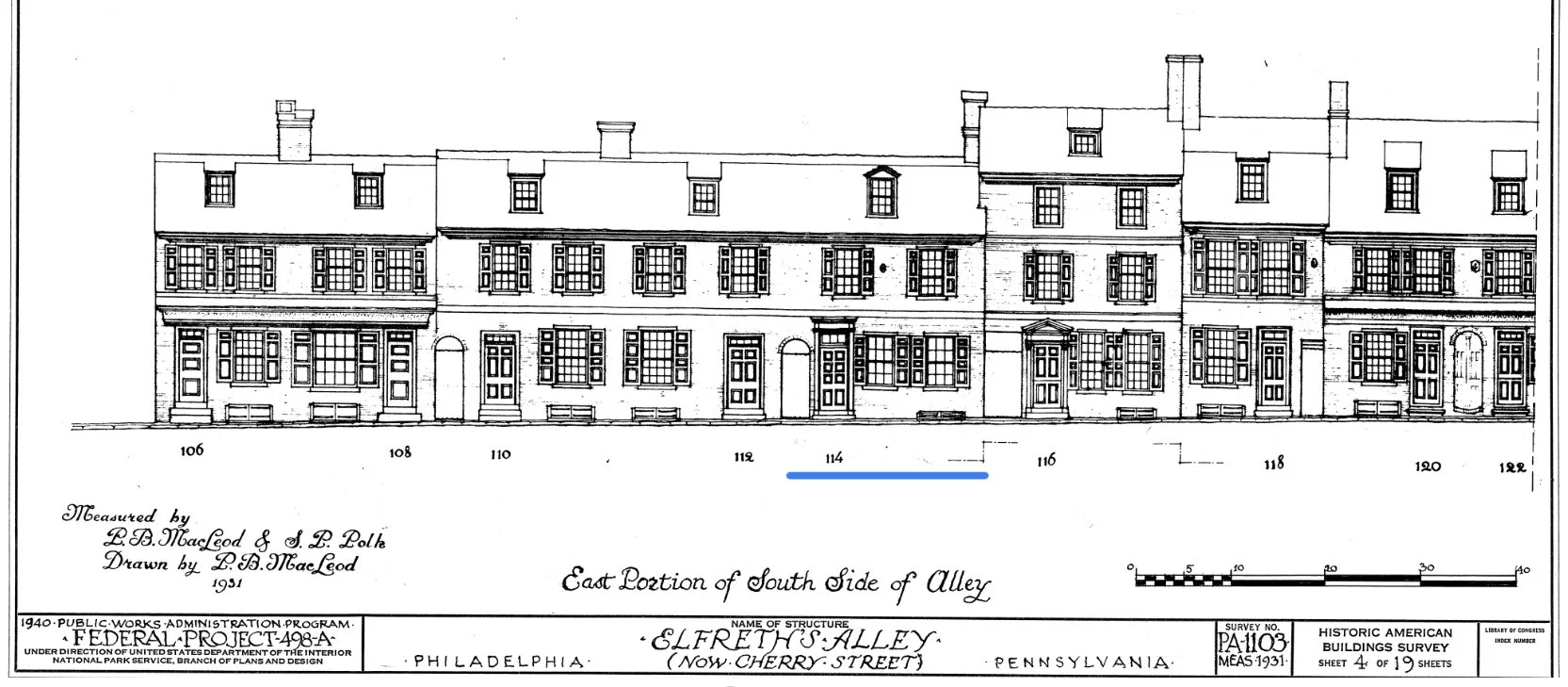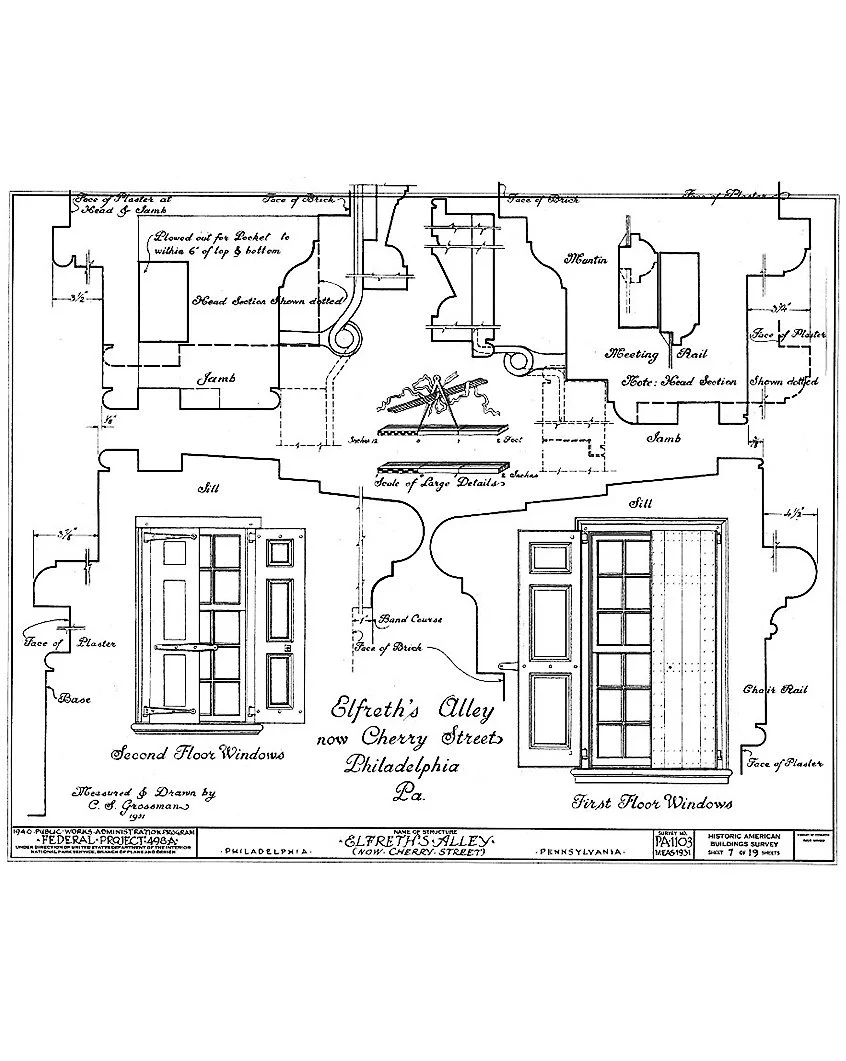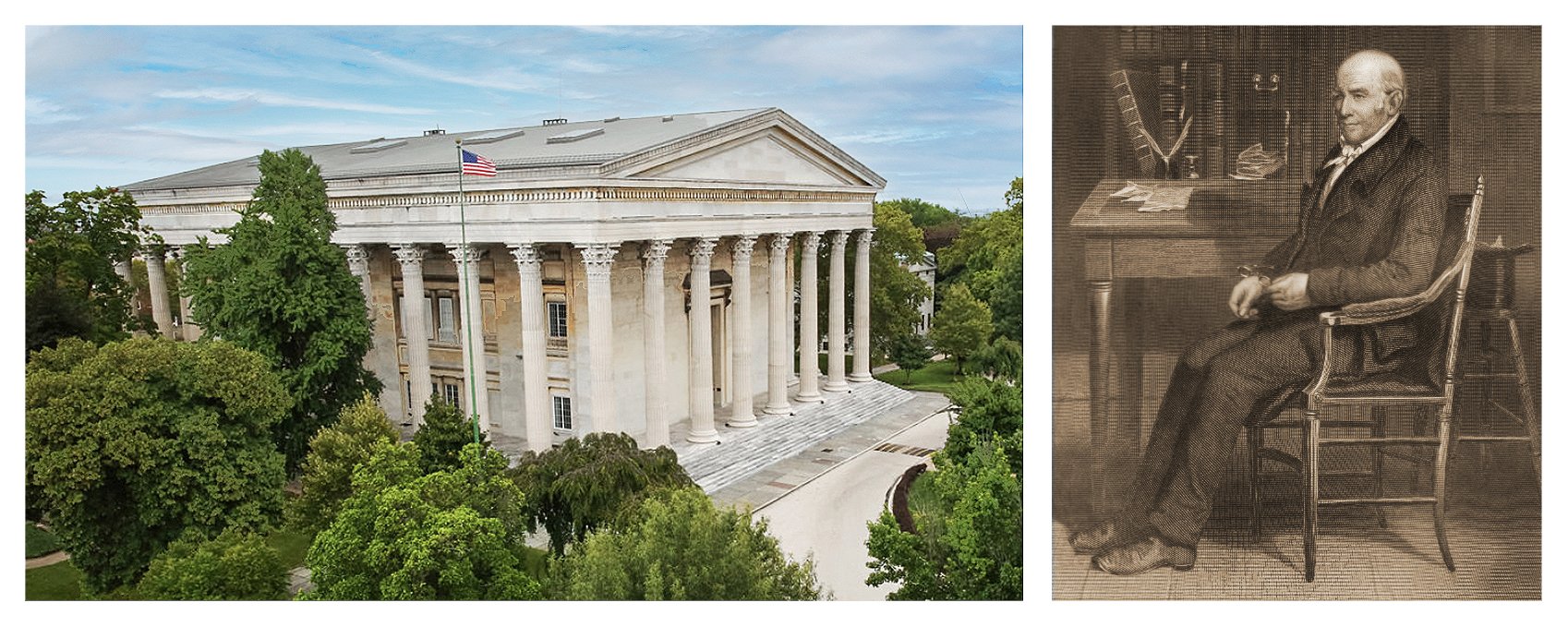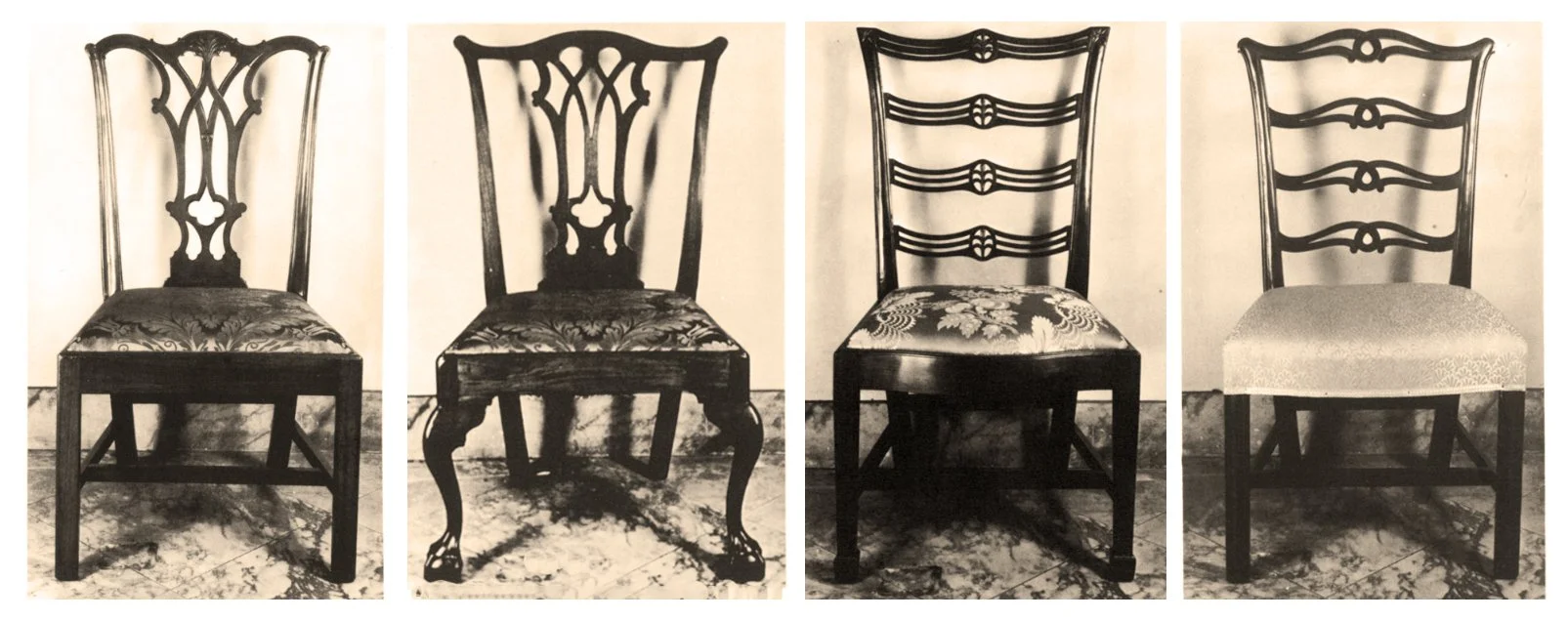Historic Quaker Houses of Philadelphia
The Trotter House
Home of Furniture Maker Daniel Trotter
114 Elfreth’s Alley
Built: 1757 - 1762
1931: Drawings of Elfreth’s Alley
For the Historic American Buildings Survey:
Above: Architect P. B. MacLeod drew this rendering of houses on Elfreth’s Alley for HABS. The drawing was published in 1940 by the Public Works Administration. Image source: Library of Congress. Digital color added.
Above: Doorway of the Trotter House. Image source: Library of Congress.
Above: Windows of the Trotter House. Image source: Library of Congress.
The Trotter House Description
Philadelphia Register of Historic Places:
Image source: Philadelphia Register of Historic Places
The Home of Furniture Maker Daniel Trotter:
Above: Walnut chest on chest, attributed to Daniel Trotter for his sister, Mary Hough Trotter Evans, ca. 1780. Image source: Christopher H. Jones Antiques. Chippendale carved mahogany open armchair, attributed to Daniel Trotter, ca. 1785. Image source: Sotheby’s.
Daniel Trotter (1747 - 1830) was one of the most successful Philadelphia furniture makers of his era. He was born into a Quaker family, and he remained an ardent Friend throughout his life.
Trotter was surrounded by cabinetmakers from a young age. He apprenticed to Quaker furniture maker William Wayne. His great uncle was a cabinetmaker and a Quaker preacher. His cousins Jeremiah and Josiah Elfreth were trained as cabinetmakers. Early in Daniel Trotter’s career he went into partnership with Quaker preacher / cabinetmaker John Webb.
In 1773 Daniel Trotter married Rebecca Canarroe. The young couple rented this house on Elfreth’s Alley, and eventually purchased the house. They soon were able to invest in real estate throughout Philadelphia.
In 1795 Daniel Trotter sold this house and moved into a larger home on Front Street. During this same time he purchased land here on the alley, which is today’s number 125 through 131. Here he built two shops of frame construction, which no longer survive. He also had a workshop on Front Street.
Daniel Trotter’s Most Important Client
Banker Stephen Girard:
Above left: Philadelphia’s Girard College, founded and endowed by Stephen Girard in 1831. Image source: GirardCollege.edu.
Above right: Portrait of banker Stephen Girard. Image source: Wikipedia.
Banker / merchant Stephen Girard was the wealthiest man in the U. S. when he died in 1831. His religious views were distinctly non-Quaker, as he was a non-religious freethinker.
For two decades Girard was the most prominent patron of Daniel Trotter’s furniture business. Today the Girard College Museum is home to many outstanding examples of Trotter’s craftsmanship.
Mahogany Chairs by Daniel Trotter
Made for Stephen Girard:
Above, Left to right: Chair 1: Mahogany side chair, possibly 1779, one of nine. Chair 2: Mahogany side chair, possibly 1779, one of three. Chair 3: Mahogany side chair, possibly 1786, one of six. Chair 4: Mahogany side chair, probably 1790, one of five.
Image source: Girard College Collection, “Daniel Trotter: Eighteenth-Century Philadelphia Cabinetmaker”, Anne Castrodale Golovin, Winterthur Portfolio, 1970.
Philadelphia Quakers and the Revolution
Furniture Seized for Nonpayment of War Tax:
It was not easy being anti-war in Philadelphia during the Revolutionary War. But pacifist Quakers resisted all war mongering. They refused to serve in the militia, refused to attend military training days, and refused to pay war taxes.
As a result, Quakers were fined, jailed, or had property seized for their acts of conscience. In 1779 tax collectors seized the household furniture of Philadelphia diarist Elizabeth Drinker for non-payment of the Continental tax / war tax.
"This morning, in meeting time, (myself at home) Jacob Franks and a son of Cling, ye Vendue Master, came to seize for ye Continental Tax. They took from us one Walnut Dining-Table, one Mahogany Tea-Table, six handsome Walnut Chairs with open backs, crow feet, a shell on ye back and on each knee, a Mahogany-framed Sconce Looking-glass, and two large Pewter Dishes. They carried them off in a cart from ye door to Cling's."
Above quote: Elizabeth Sandwith Drinker Diaries, Historical Society of Pennsylvania.
Trotter House Links:








